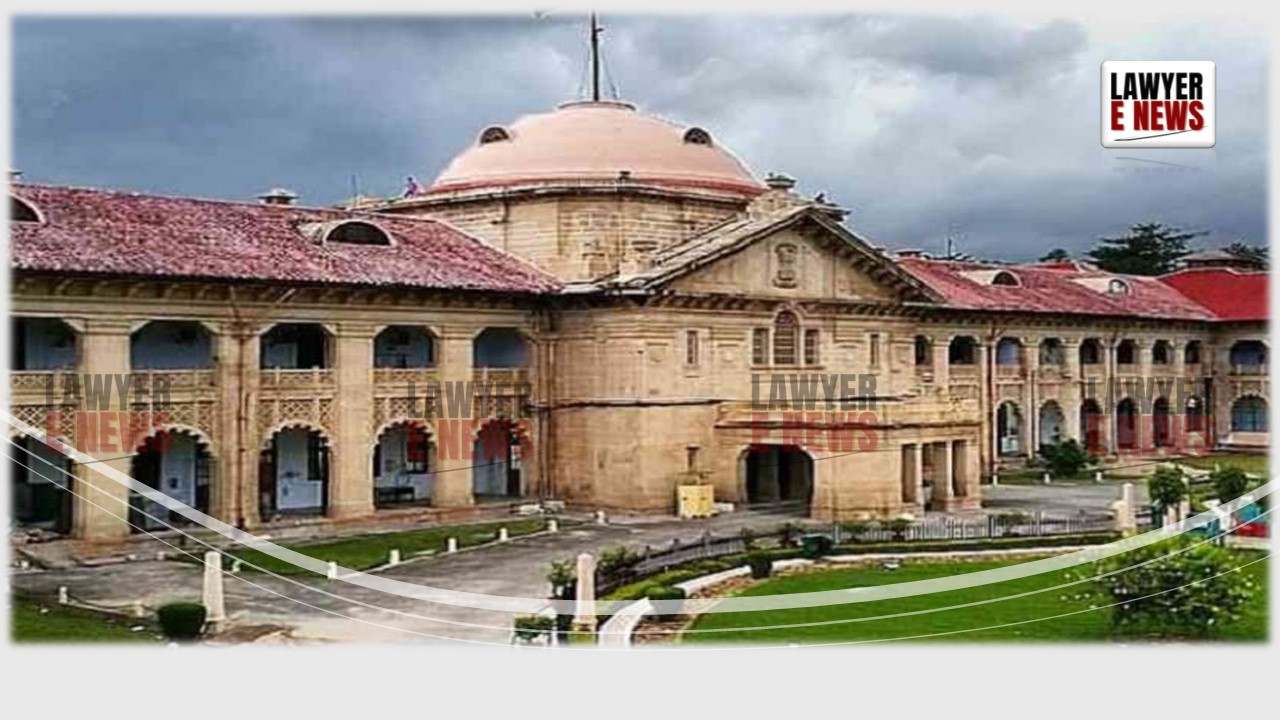-
by Admin
16 February 2026 1:47 PM



Re-Investigation is the Exclusive Domain of Constitutional Courts, Not Sessions Judges," In a critical ruling, the Allahabad High Court has quashed an order of the Additional District & Sessions Judge-II, Gautam Buddha Nagar, which directed re-investigation into the role of Jaypee Hospital in a case involving allegations of medical negligence, fraud, and destruction of evidence.
Justice Saurabh Srivastava, while deciding Matters Under Article 227 No. 13987 of 2024, held, "A Sessions Court has no authority to order re-investigation. Such power is vested exclusively in constitutional courts, namely the High Court and the Supreme Court. Further investigation under Section 173(8) Cr.P.C. is distinct from re-investigation, and even that cannot be directed arbitrarily."
The petitioner-hospital had approached the High Court challenging the Sessions Court’s order passed on May 17, 2024, which, while granting anticipatory bail to a co-accused doctor, had directed re-investigation into the hospital’s role. The High Court ruled that this direction was beyond the jurisdiction of the Sessions Court and must be set aside.
"Re-Investigation and Further Investigation Are Not the Same – Sessions Court Overstepped Its Jurisdiction"
The Court relied extensively on the Supreme Court’s ruling in Vinay Tyagi vs. Irshad Ali (2013) 5 SCC 762, which had drawn a clear distinction between re-investigation, which wipes out the earlier probe, and further investigation, which supplements the existing probe. The Court held: "The Sessions Court conflated further investigation with re-investigation. The latter is only permissible when a court of competent jurisdiction finds that the initial probe was tainted, unfair, or deficient to the extent that it violates constitutional principles. Even then, a re-investigation must be ordered with specific reasoning and a clear direction on the fate of the earlier probe. The Sessions Court lacked the jurisdiction to pass such an order."
"Anticipatory Bail Proceedings Cannot Be Used to Direct Investigation Against Third Parties"
The High Court strongly criticized the Sessions Court for making observations about Jaypee Hospital’s role while deciding an anticipatory bail plea of a co-accused doctor. Justice Srivastava stated, "An anticipatory bail hearing is confined to granting or rejecting bail. The Sessions Court had no occasion to pass observations regarding the hospital or to direct an investigating officer to re-investigate its role. Such an order is not just beyond jurisdiction but also procedurally improper."
"Judicial Precedents Establish That Only High Courts and Supreme Court Can Order Re-Investigation"
The High Court reinforced its stance by citing multiple Supreme Court precedents, including Naresh Kumar Mangla vs. Anita Agrawal & Others (2021) 15 SCC 777 and State of U.P. vs. Akhil Sharda & Others, 2022 SCC Online SC 820. These cases emphasize that re-investigation is an exceptional measure and can only be ordered by higher constitutional courts under extraordinary circumstances.
"The principle of rarest of rare cases applies to re-investigation. Unless the initial probe is so unfair that it pricks the judicial conscience, courts should be reluctant to interfere. The Sessions Court had no legal basis to order re-investigation in an anticipatory bail proceeding," the Court observed.
"Quashing the Order – Sessions Judge Had No Power to Direct Re-Investigation"
Summarizing its findings, the High Court unequivocally ruled: "The direction for re-investigation contained in paragraph 14 of the order dated 17.05.2024 is without jurisdiction and is hereby quashed. The petitioner-hospital shall not be subjected to re-investigation unless explicitly directed by a constitutional court."
The ruling underscores the critical principle that lower courts cannot arbitrarily extend their jurisdiction beyond their statutory limits. It ensures that investigatory processes are not misused and remain within the legal framework.
Date of Decision: February 21, 2025
